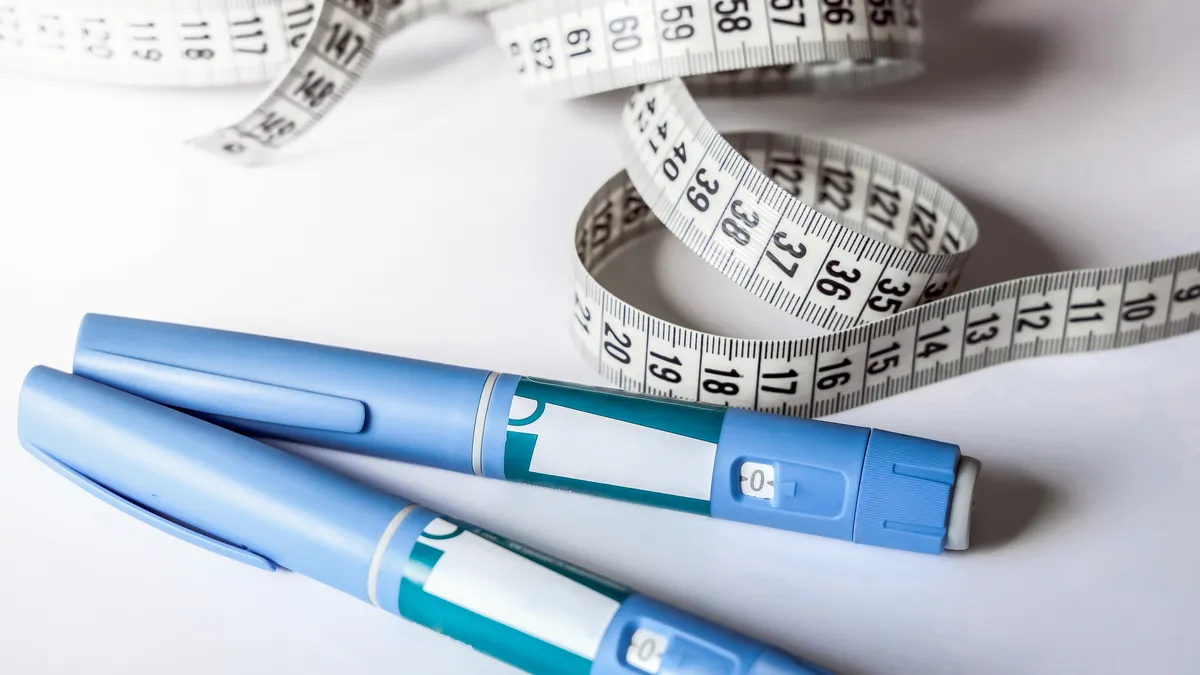Four life science investors are pouring $400 million into a new biotechnology startup that’s licensed a portfolio of weight loss medicines from Chinese drugmaker Jiangsu Hengrui Pharmaceuticals, according to a disclosure posted on the Shanghai Stock Exchange Thursday.
The newly created company, currently referred to as “Hercules CM NewCo,” is backed by Bain Capital Life Sciences, RTW Investments, Atlas Venture and Lyra Capital, and was incorporated this month. It has licensed three drug candidates from Hengrui in return for $110 million in upfront and near-term payments as well as a roughly 20% equity stake, according to the filing.
The company could owe Hengrui as much as $200 million more if certain clinical and regulatory milestones are met, and up to $5.7 billion if the licensed drugs are approved and hit certain cumulative sales thresholds, the filing said.
Hercules’ most advanced drug, dubbed HRS-7535, is an oral “incretin” in phase 2 testing in people with Type 2 diabetes and obesity. Like Novo Nordisk’s fast-selling injectable drug Wegovy and multiple experimental pills in testing at Novo, Eli Lilly and other companies, it stimulates a gut hormone called GLP-1.
A second candidate, HRS-9531, is in multiple mid-stage studies in diabetes and obesity. That drug acts on the hormones GLP-1 and GIP, the same targets as Eli Lilly’s Zepbound. Other developers, among them Roche and Viking Therapeutics, have similar therapies in testing. Hengrui’s drug is being developed as a weekly injection and as a tablet.
A third therapy, codenamed HRS-4729, is in preclinical development.
The disclosure doesn’t specify who will lead Hercules or serve on its board of directors. RTW declined to comment, while Bain Capital, Atlas, Lyra and Hengrui didn’t respond to requests for comment from BioPharma Dive.
However, the filing does show Hercules’ ownership structure. Bain invested $225 million, giving it a 39% stake in the company. RTW holds just over 19% via a $110 million investment. Atlas provided $50 million in return for a little less than 9% of Hercules equity, while Lyra put in $15 million and holds a roughly 3% stake.
Hercules emergence is the latest example of the significant investment pouring into what’s become one of the most competitive areas in pharmaceutical research. Novo and Lilly are the dominant players, with drugs already on the market and multiple successor therapies advancing through testing.
A large group of drugmakers are advancing would-be competitors, though. Amgen, Roche, and Boehringer Ingelheim have closely watched medicines in clinical testing. So do publicly traded biotechs Viking and Structure Therapeutics. Joining them are several startups, including Metsera, which raised $290 million in funding last month.
Hengrui, meanwhile, was also involved in a biotech recently backed by Atlas and Bain Capital. Called Aiolos Bio, it licensed an asthma drug from Hengrui that became the centerpiece of a $1 billion buyout from GSK in January.













